
"The Respectable Burgher on The Higher Criticism" is a poem by Thomas Hardy. It was originally published in 1901 in his collection Poems of the Past and Present.

"The Respectable Burgher on The Higher Criticism" is a poem by Thomas Hardy. It was originally published in 1901 in his collection Poems of the Past and Present.
The "higher criticism" that Hardy refers to is criticism that refutes the literal truth of Biblical Scripture, and gives scientific evidence against the supposed revealed truth of the Bible. [1]
Hardy had claimed that what couldn't be easily said in prose could be said in verse, and as there was no public outcry in regard to Poems of the Past and Present, along with "The Respectable Burgher" and its other contents, he seems to have been proven right. Criticism of the volume was mostly favorable; Sir George Douglas thought that it was better than Hardy's previous volume Wessex Poems and Other Verses , and The Saturday Review , although it repeated complaints that Hardy's poems were "harsh and unmusical", stated that "almost every poem had something to say with an arresting quality." [2]
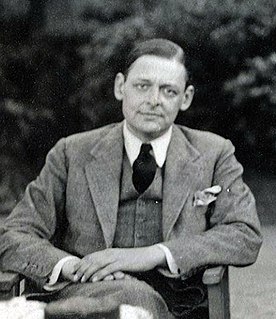
Thomas Stearns Eliot was a poet, essayist, publisher, playwright, literary critic and editor. Considered one of the 20th century's major poets, he is a central figure in English-language Modernist poetry.

Wystan Hugh Auden was an Anglo-American poet. Auden's poetry was noted for its stylistic and technical achievement, its engagement with politics, morals, love, and religion, and its variety in tone, form, and content. Some of his best known poems are about love, such as "Funeral Blues"; on political and social themes, such as "September 1, 1939" and "The Shield of Achilles"; on cultural and psychological themes, such as The Age of Anxiety; and on religious themes such as "For the Time Being" and "Horae Canonicae".
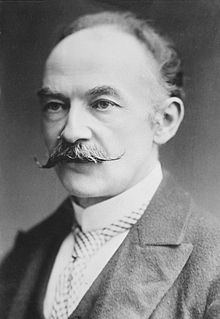
Thomas Hardy was an English novelist and poet. A Victorian realist in the tradition of George Eliot, he was influenced both in his novels and in his poetry by Romanticism, including the poetry of William Wordsworth. He was highly critical of much in Victorian society, especially on the declining status of rural people in Britain, such as those from his native South West England.
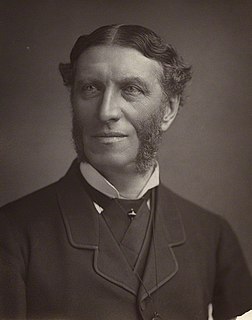
Matthew Arnold was an English poet and cultural critic who worked as an inspector of schools. He was the son of Thomas Arnold, the celebrated headmaster of Rugby School, and brother to both Tom Arnold, literary professor, and William Delafield Arnold, novelist and colonial administrator. Matthew Arnold has been characterised as a sage writer, a type of writer who chastises and instructs the reader on contemporary social issues. He was also an inspector of schools for thirty-five years, and supported the concept of state-regulated secondary education.

This article focuses on poetry from the United Kingdom written in the English language. The article does not cover poetry from other countries where the English language is spoken, including Republican Ireland after December 1922.
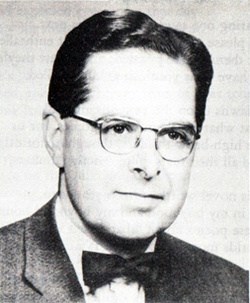
Donald Alfred Davie was an English Movement poet, and literary critic. His poems in general are philosophical and abstract, but often evoke various landscapes.
Thomas Rymer was an English poet, critic, antiquary and historian. His lasting contribution was to compile and publish 16 volumes of the first edition of Foedera, a work in 20 volumes containing agreements made between The Crown of England and foreign powers since 1101. He held the office of English Historiographer Royal from 1692 to 1714. He is credited with coining the phrase "poetic justice" in his book The Tragedies of the Last Age Consider'd (1678).
Poems of 1912–1913 are an elegiac sequence written by Thomas Hardy in response to the death of his wife Emma, in November 1912. An unsentimental meditation upon a complex marriage, the sequence's emotional honesty and direct style made its poems some of the most effective and best-loved lyrics in the English language.
This glossary of literary terms is a list of definitions of terms and concepts used in the discussion, classification, analysis, and criticism of all types of literature, such as poetry, novels, and picture books, as well as of grammar, syntax, and language techniques. For a more complete glossary of terms relating to poetry in particular, see Glossary of poetry terms.
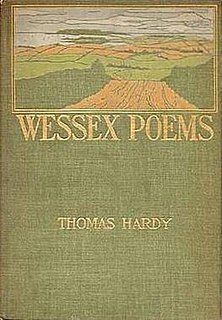
Wessex Poems and Other Verses is a collection of fifty-one poems set against the bleak and forbidding Dorset landscape by English writer Thomas Hardy. It was first published in 1898 by New York: Harper, ISBN 1-58734-021-6, and contained a number of illustrations by the author himself.

Emma Lavinia Gifford was the first wife of the English novelist and poet Thomas Hardy.
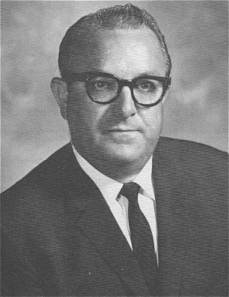
Oliver Boyce Greene was an American Independent Fundamental Baptist evangelist and author. He was saved on September 9, 1935, at the age of 20. Greene was ordained as a Baptist minister at Morgan Memorial Baptist Church in Greenville, South Carolina on July 24, 1939. Over 200,000 confessions of faith were recorded as a result of his ministry. He attended North Greenville Baptist College briefly before entering full-time ministry, conducting revival meetings in tents and in churches across the eastern United States from 1939–1968.

The Well Wrought Urn: Studies in the Structure of Poetry is a 1947 collection of essays by Cleanth Brooks. It is considered a seminal text in the New Critical school of literary criticism. The title contains an allusion to the fourth stanza of John Donne's poem, "The Canonization", which is the primary subject of the first chapter of the book.

"The Ruined Maid" is a satirical poem by Thomas Hardy. It was written in 1866 but first published, in a slightly bowdlerized form, in Poems of the Past and the Present (1901).
Moments of Vision and Miscellaneous Verses is a collection of poems by English poet Thomas Hardy published in 1917. His largest poetic collection, Moments of Vision is unusually unified in emotional tone, and is considered to include some of the finest work of his late poetic career.
Late Lyrics and Earlier with Many Other Verses is a collection of poems by English poet Thomas Hardy, and was published in 1922. While covering a typical range of subjects - such as mismatchings, grotesqueries, and ironic memories - the poems generally take a musical shape, often remembering the past in ballad format.
Time's Laughingstocks and Other Verses is a collection of poems by English poet Thomas Hardy, and was published in 1909. It includes poems of various dates, mainly concerned with rural, familial and provincial life.
Poems of the Past and the Present is the second collection of poems by English poet Thomas Hardy, and was published in 1901. A wide-ranging collection, divided into five headings, it contains some of Hardy's most powerful and lasting poetic contributions.
A Choice of Kipling's Verse, made by T. S. Eliot, with an essay on Rudyard Kipling is a book first published in December 1941. It is in two parts. The first part is an essay by American-born British poet T. S. Eliot (1888-1965), in which he discusses the nature and stature of British poet Rudyard Kipling (1865-1936). The second part consists of Eliot's selection from Kipling's poems.
"The Higher Pantheism" is an 1867 poem by Alfred, Lord Tennyson, in which Tennyson presents a view of God as subsisting throughout the material world. The poem drew both praise and criticism, as well as examination of its inspirations in the words of Tennyson's contemmporaries.